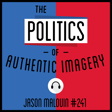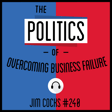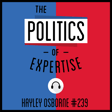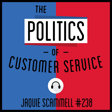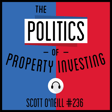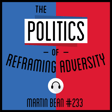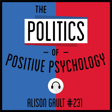
234: The Politics of Ethical Entrepreneurship - Amanda Rose
Amanda Rose was an early guest on this show (in fact ep 95 The Politics of Ambition) and that was some years ago. Since then, much has evolved for her and those she works with and how to create impact in business communities.
Today Amanda Rose (#BossLady) is an advocate for women in business, a media commentator, keynote speaker and an entrepreneur. Appearing weekly on Sunrise and SkyNews and contributing regularly to the Australian Financial Review, the Daily Telegraph and SmartCompany, Amanda applies compassionate critical thinking to disseminate complex issues affecting everyday Australians.
Amanda is the Founder and CEO of Entrepreneurial & Small Business Women Australia (ESBWA) and the Founder and CEO of Western Sydney Women. She founded and sold Business Women Media, the first platform of its kind to advocate for small business women. As a mentor and advisor to women in executive roles and SMEs, Amanda is known for her strategic, practical approach to leadership and business.
Hear this time from Amanda on:
1. One definition I saw was that ethical entrepreneurship is beyond the bottom line, and aims to make a positive impact on the world. By embracing say more sustainable practices, entrepreneurs can contribute to environmental preservation and resource conservation. How would you describe ethical entrepreneurship and why is that something you are keen to unpack further?
2. When do ethics get challenged for entrepreneurs and is making money usually the root cause? View and examples (up to 2) please.
3. Some successful leaders dismiss this emphasis on business ethics as a form of virtue signalling – what would you say to this?
4. How can ethics be seen more than externally espoused vision or mission statement? Doing good and looking good are not always the same thing in business.
5. Your favourite ethical entrepreneur and why?
6. Current business tool or app etc that you’re enjoying (not a smartphone) and what can it do that helps you?
7. Takeaway: What is your final message for us on The Politics of Ethical Entrepreneurship?
Connect further:
Website: https://www.amandarose.com.au
LinkedIn: https://www.linkedin.com/in/amandarosemedia/
Instagram: https://www.instagram.com/theamandarose/
Facebook: https://www.facebook.com/amandarosebosslady
POE listener offer: Zencastr is my podcast platform of choice. Use my special link (zen.ai/thepoliticsofeverything30 [http://zen.ai/thepoliticsofeverything30]) and use code "THEPOLITICSOFEVERYTHING" to save 30% off your first three months of Zencastr professional. #madeonzencastr










